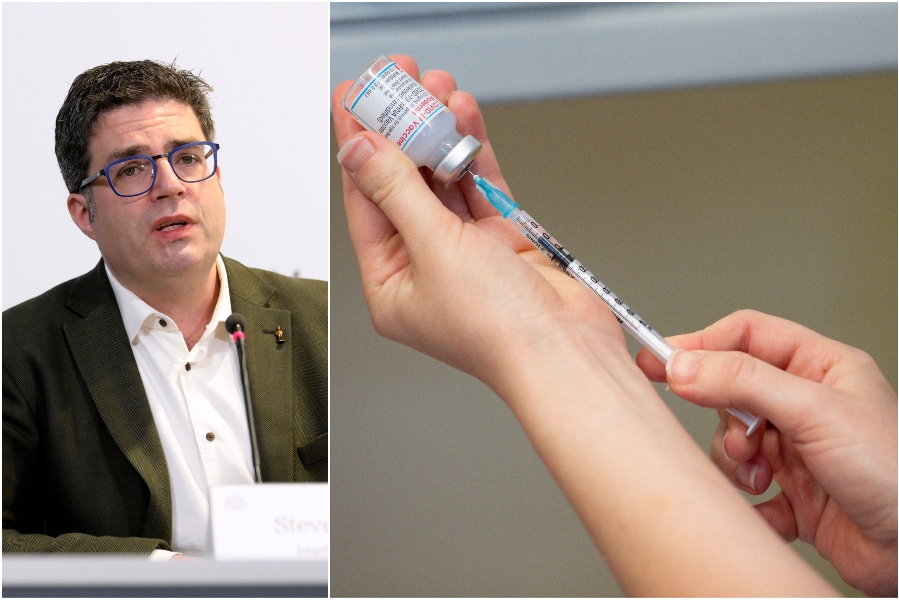During the press conference of the crisis center, Steven Van Gucht said that he is not comfortable. According to the most recent figures from Sciensano, the number of infections has increased, hospital admissions are barely falling and the number of deaths continues to rise.
Van Gucht says that the increase in the number of infections is due to the Easter Monday effect. On public holidays, much less testing is done, but that day is now part of the control week, which means that the number of infections is now 8 percent higher than the week before. “That artifact should gradually disappear from the numbers,” the virologist said Friday.
It is mainly people in their twenties who are currently infected and the increase in the figures here is also higher than the average at +18 percent. In children and teenagers, there is still a “nice” downward trend, despite the Easter Monday effect. The figures here are 6 percent and 22 percent lower than the week before.
LIVE. Follow all developments about the corona virus here
The virologist also asks that anyone who thinks they are infected, came into contact with someone who was infected or has symptoms, should absolutely get tested. He advises against the use of self-tests in case of symptoms. “We see that the number of lab tests has fallen sharply from 70,000 to 40,000 tests per day. At the same time, positivity has not been that high in five months. We will therefore miss many infections. The low number of tests is undoubtedly related to the holiday, but they remain crucial. So get tested through your doctor or test center. Also work with a professional instead of self-testing for symptoms ”, it sounds.
Only one bed per hospital in the intensive care unit
In total, there would be approximately 1 bed available per hospital in an intensive care unit. On Tuesday, April 13, there was even a peak of 947 patients in a care department. So the pressure is still very high. “It is important to emphasize that we have to keep the occupancy under intensive control, because beds cannot be created indefinitely. Because every new bed also requires new staff. We cannot continue to train them ”, said virologist Steven Van Gucht on Friday.
According to Van Gucht, because there are so few beds left, we must continue to focus on limiting the spread of the virus. If that does not work, new solutions have to be found: “We would then have to look for new beds or create extra beds, but that is difficult. You must therefore train new staff, staff that are not always available. In that case, the non-Covid care must also be postponed. But if you create extra beds, the quality of care deteriorates and the risk of death increases, ”says Van Gucht.
“You could consider referring patients abroad. But that always concerns a small number of patients. But that is not easy either, because in our neighboring countries – France and the Netherlands – the intensive care services are also full. In Germany they also report a sharp increase. That is why we should try to slow down the spread of the virus, ”he said.
Relaxations seem feasible
Despite the heavy pressure on hospitals and high infection rates, the easing is still feasible, according to the crisis center. Although there are also warnings that we still have to comply with the measures. “The vaccine will help in the long term, but the vaccination coverage is still too low to have a real impact,” said Van Gucht on Friday morning.
In total, 18 percent of Belgians have already been vaccinated. The number of vaccinations has also increased. For example, about 520,000 files are now administered per week.
– .


